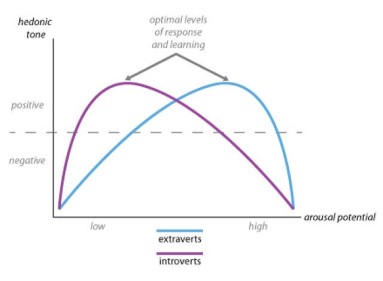Mats Küssner, February 5th 2015.
Could listening to background music when studying improve learning? Background music has often been claimed to have beneficial effects such as increasing focus, concentration, and productivity, as well as generally improving learning. Websites such as ‘focus@will’ (www.focusatwill.com) and ‘Earworms Musical Brain Trainer’ (www.earwormslearning.com) have sung the praises of harnessing music to boost brain function. However, websites such as these often base their claims on spurious evidence, and usually have vested interests commercially. Also, background music has at times been shown to be ineffective or even detrimental in some contexts. Mats Küssner, from the Centre for Performance Science, at the Royal College of Music (www.rcm.ac.uk/cps), is a music psychologist who has studied the effects of background music on learning. He gave a lecture at Goldsmiths, University of London in February 2015, about these effects generally, and also about the specific role of personality in these effects. Are different cognitive tasks affected in different ways by background music, and why does personality have an impact on this?
Küssner emphasised the difficulty of finding a ‘one size fits all’ effect of background music on learning, as individual differences appear to be a crucial factor in the nature of any effects. Leaving this to one side for the moment however, according to Küssner the beneficial effects of background music have been displayed in the following:
- Reading Comprehension (e.g. Kiger, 1989)
- IQ tests (e.g. Cockerton, 1997)
- Visual search tasks (e.g. Crust et al, 2004)
- Foreign Vocabulary Learning (e.g. de Groot, 2006; Kang & Williamson, 2014)
Detrimental effects of background music on learning have been found in some of the same, and some different, tasks:
- Reading Comprehension (e.g. Thompson et al, 2012; Avila et al, 2012)
- Verbal Memory (e.g. Woo & Kanachi, 2005; Cassidy & MacDonald, 2007)
- Visual Memory (e.g. Furnham & Bradley, 1997)
- Recall of Numbers (e.g. Nittino, 1997; Alley & Greene, 2008)
In addition to this, other studies have often found no effect of background music at all (e.g. Pool et al, 2003). The study conducted by de Groot (2006) is especially relevant to the main focus of Küssner’s lecture, in that more learning occurred when background music was playing compared to when it was silent. De Groot presented 64 pairs of words, each comprising one native language and one foreign language word, at six separate times to participants. In a recall test one week later, typical and common words were learned better in general, compared with atypical and uncommon words, and background music appeared to improve learning of foreign words. Crucially however, although the effect of background music generalised across words, the effect did not generalise across participants. This implies that individual differences might account for the lack of a general effect. De Groot mentions that the results may be due to ‘individual learner differences’, but does not elaborate further. Could these differences include personality?
Hans Eysenck, most known for his work on intelligence and personality, proposed a theory of personality that included the key dimension ‘extraversion’ (1967). At one end of this scale, people who are ‘extraverts’ require a larger amount of external stimulation, and require this in order to maintain arousal (sensory alertness). In contrast, at the other end of this scale, ‘introverts’ require inner, mental stimulation in order to maintain their level of arousal, and are prone to losing energy after long social encounters. This relationship is shown in the graph below. Introverts tend to be in a higher state of arousal than extraverts, and overly high levels of arousal can impair performance, when levels of the hormone ‘cortisol’ are too high in the bloodstream. This is important, as it implies that this aspect of personality could be an important factor affecting language learning for example, in addition to any effects of background music. However, again there is mixed evidence both in favour and against these effects of extraversion. Could extraversion have an impact on language learning, in combination with background music?

This graphic shows the different optimum levels of arousal required for introverts and extraverts (www.fastcompany.com)
A potential solution to the problem of measuring personality, put forward by Mats Küssner in the lecture, is to measure cortical arousal as an indirect and more objective, biological measure of personality. Eysenck believed that levels of cortical arousal could be used as a biological measure of differences in extraversion. Cortical arousal is thought to be inversely proportional to ‘alpha activity’ in the brain; therefore extraverts should generally have higher levels of alpha activity than introverts. Yet again, there is mixed evidence for this relationship (e.g. Hagemann et al, 2009; Schmidtke & Heller, 2004)! However, it is a more objective measure than any other tests of extraversion. How could this relationship be used experimentally, in order to test whether background music and extraversion interact to affect learning?
Using a variation of de Groot’s (2006) study on foreign vocabulary learning, Küssner and his colleagues introduced the variable of extraversion. 15 highly extraverts and 16 highly introverts were used, split by high and low ‘alpha’ and ‘beta’ activity groups. They predicted that introverts, when learning with background music, would perform more poorly on the word recall task than when learning in silence. Extraverts were predicted to perform as well if not better on the word recall task when learning with background music compared with silence. More generally, people who had high cortical arousal were expected to perform more poorly on the task when background music was playing during learning, and those with low cortical arousal should be unaffected. This hypothesised interaction effect on word recall was not significant. However, there was an unexpected effect of cortical arousal in the beta band on word recall: individuals with high beta activity recalled more words than those with low beta activity. When this study was replicated however, no significant evidence whatsoever was found, apart from a beneficial effect of background music. This may have been due to there genuinely being no effects, or alternatively, it could have been caused by other individual differences such as musical training or neuroticism (another personality dimension).
It remains unclear as to whether listening to background music while studying verbal material has any beneficial effects on learning, and this could well depend on context, type of task, and most importantly individual differences. Any applications promoting possible positive effects should be treated carefully, especially as they often have their own commercial interests in mind. Although the importance of individual differences are clear, meaning any effects of background music are not generalizable, whether personality specifically has an impact has still not been shown conclusively. Mats Küssner mentioned the possible importance of other individual differences, such as musical training and neuroticism. This suggests that further research needs to be done using individual differences in the effects of background music on learning. Ultimately, if you enjoy listening to certain music when studying or working, some ambiguous scientific evidence shouldn’t put you off.
By Joe Newton
References
Alley, T. R., & Greene, M. E. (2008). The Relative and Perceived Impact of Irrelevant Speech, Vocal Music and Non-Vocal Music on Working Memory. Current Psychology, 27(4), 277-289.
Avila, C., Furnham, A., & McClelland, A. (2012). The Influence of Distracting Familiar Vocal Music on Cognitive Performance of Introverts and Extraverts. Psychology of Music, 40(1), 84-93.
Cassidy, G., & MacDonald, R. A. (2007). The Effect of Background Music and Background Noise on the Task Performance of Introverts and Extraverts. Psychology of Music, 35(3), 517-537.
Cockerton, T., Moore, S., & Norman, D. (1997). Cognitive Test Performance and Background Music. Perceptual and Motor Skills, 85(3f), 1435-1438.
Crust, L., Clough, P. J., & Robertson, C. (2004). Influence Of Music and Distraction on Visual Search Performance of Participants with High and Low Affect Intensity 1. Perceptual and motor skills, 98(3), 888-896.
De Groot, A. (2006). Effects of Stimulus Characteristics and Background Music on Foreign Language Vocabulary Learning and Forgetting. Language Learning, 56(3), 463-506.
Eysenck, H. J. (1967). The Biological Basis of Personality (Vol. 689). Transaction publishers.
Furnham, A., & Bradley, A. (1997). Music While you Work: The Differential Distraction of Background Music on the Cognitive Test Performance of Introverts and Extraverts. Applied Cognitive Psychology, 11(5), 445-455.
Hagemann, D., Hewig, J., Walter, C., Schankin, A., Danner, D., & Naumann, E. (2009). Positive Evidence for Eysenck’s Arousal Hypothesis: A Combined EEG and MRI Study with Multiple Measurement Occasions. Personality and Individual Differences, 47(7), 717-721.
Kang, H. J., & Williamson, V. J. (2014). Background Music can aid Second Language Learning. Psychology of Music, 42(5), 728-747.
Kiger, D. M. (1989). Effects of Music Information Load on a Reading Comprehension Task. Perceptual and Motor Skills, 69(2), 531-534.
Nittono, H. (1997). Background Instrumental Music and Serial Recall. Perceptual and Motor Skills, 84(3c), 1307-1313.
Pool, M. M., Koolstra, C. M., & Voort, T. H. (2003). The Impact of Background Radio and Television on High School Students’ Homework Performance. Journal of Communication, 53(1), 74-87.
Schmidtke, J. I., & Heller, W. (2004). Personality, Affect and EEG: Predicting Patterns of Regional Brain Activity Related to Extraversion and Neuroticism. Personality and Individual Differences, 36(3), 717-732.
Thompson, W. F., Schellenberg, E. G., & Letnic, A. K. (2012). Fast and Loud Background Music Disrupts Reading Comprehension. Psychology of Music, 40(6), 700-708.
Woo, E. W., & Kanachi, M. (2005). The Effects of Music Type and Volume on Short-Term Memory. Tohoku Psychologica Folia, 64, 68-76.
Further reading
Eysenck, H. J. (1968). Eysenck Personality Inventory. San Diego: Educational and Industrial Testing Service.
Eysenck, H. J., & Eysenck, M. W. (1987). Personality and Individual Differences. Plenum.


Gr8 writing your article helps a lot.
Thanks!